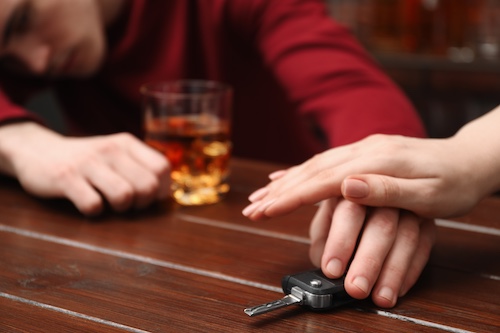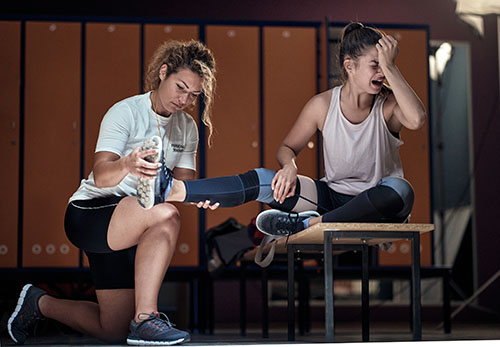- Car Accidents
Founder of Wade Law and expert trial attorney with experience in the courts and in the classroom, lecturing in several courses. Admitted to all of Georgia’s courts and the United States Supreme Court
Dram Shop Liability in Georgia: Holding Alcohol Providers Accountable
Drunk driving accidents often cause serious injuries or death, and in some cases, the business that served the alcohol may share legal responsibility. Under Georgia’s dram shop laws, bars, restaurants, liquor stores, and other commercial establishments can be held liable if they serve alcohol to someone who is underage or visibly intoxicated and that person causes harm. This legal principle, known as dram shop liability, allows victims to seek damages from both the drunk driver and the alcohol provider.
In this blog, we explain how dram shop liability works in Georgia, what businesses may be held responsible, what victims must prove to recover damages, and why working with an experienced Fayetteville drunk driving accident lawyer is important for building a strong claim.
What Is Dram Shop Liability?
Dram shop liability is a legal concept that holds businesses responsible when they serve alcohol to someone who later causes harm. This includes bars, restaurants, liquor stores, and other commercial establishments that sell or serve alcoholic beverages in Georgia.
Definition of Dram Shop Liability
Dram shop laws allow victims to hold an alcohol provider legally accountable if that provider served alcohol to a visibly intoxicated person or an underage drinker who then caused injury or death. The term “dram shop” comes from old English taverns that sold alcohol by the dram, a small measure of liquor.
Purpose of Dram Shop Laws
The goal of dram shop laws is to reduce alcohol-related harms by placing legal responsibility on businesses that serve alcohol irresponsibly. These laws encourage better practices among establishments that sell alcohol and aim to prevent impaired driving and alcohol-related injuries.
Application in Georgia
Georgia’s dram shop laws are outlined in O.C.G.A. § 51-1-40. This statute allows injured parties to recover damages if they can prove that the business served alcoholic beverages to a noticeably intoxicated adult or a minor, and the business had actual knowledge the person would soon be driving a motor vehicle.
Difference from Social Host Liability
Dram shop liability applies to commercial establishments. Social host liability, by contrast, typically applies to private individuals who serve alcohol at personal events. In Georgia, social hosts can be held liable only in cases involving underage drinkers.
Why It Matters
Understanding dram shop liability helps victims identify all responsible parties after a drunk driving accident. A Fayetteville drunk driving accident attorney can review the facts and determine if a business may be held liable under Georgia’s dram shop act.
Georgia’s Dram Shop Act: O.C.G.A. § 51-1-40
Georgia’s dram shop laws are outlined in a specific statute that defines when a business can be held liable for serving alcohol that leads to harm.
Overview of the Statute
The Official Code of Georgia Annotated § 51-1-40 is the foundation of Georgia’s dram shop liability rules. It applies to bars, restaurants, liquor stores, and other commercial establishments that sell or serve alcoholic beverages. This law creates a path for victims to seek damages when a business serves alcohol in a way that leads to injury or death.
When a Business Can Be Held Liable
A business may be held liable under Georgia’s dram shop act if it meets two conditions. First, the business must have knowingly served alcoholic beverages to someone who was either under the legal drinking age or was in a state of noticeable intoxication. Second, the business must have had actual knowledge that the person would soon be driving a motor vehicle.
These two elements are required. If either is missing, the business is usually not held responsible for the damages caused by the intoxicated person.
Importance of Actual Knowledge
Actual knowledge means the alcohol provider knew the person planned to drive. This is more than guessing or assuming. It requires proof that the defendant knew the individual would soon operate a vehicle after being served. This is a key part of Georgia’s dram shop laws and is often the most difficult element to prove.
Who Is Protected by the Law
Victims who suffer harm due to impaired driving may be eligible to recover damages from both the drunk driver and the establishment that served them. This includes pedestrians, passengers, other drivers, and in some cases, the intoxicated person themselves if they are underage.
A Legal Tool for Accountability
Georgia’s dram shop act holds alcohol providers accountable for the way they serve alcohol. If a business ignores the signs of visible intoxication or serves underage drinkers who go on to cause harm, they may be responsible. A Fayetteville drunk driving accident attorney can examine the evidence to determine if a dram shop claim applies.
Types of Establishments Subject to Dram Shop Liability
Georgia’s dram shop laws apply to specific types of businesses that sell or serve alcohol to the public. These commercial establishments can be held liable if they serve alcohol in a way that leads to injury or death.
Bars and Nightclubs
Bars and nightclubs are often named in dram shop claims. These venues serve alcoholic beverages in large quantities and are responsible for monitoring patrons for signs of noticeable intoxication. If a bartender serves a visibly intoxicated adult who later causes harm, the business may be held liable under Georgia’s dram shop act.
Restaurants That Serve Alcohol
Restaurants that serve alcohol alongside food are also subject to dram shop liability. Servers and staff must be trained to recognize the signs of impairment. If they serve an intoxicated person who then operates a motor vehicle, the restaurant could face legal action from victims.
Liquor Stores and Retail Alcohol Sellers
Liquor stores and other businesses that sell alcohol for off-premises consumption can be held responsible if they sell to underage drinkers or visibly intoxicated individuals. Georgia’s dram shop laws do not exclude these types of alcohol providers from potential liability.
Event Venues and Other Commercial Establishments
Private event venues, sports arenas, and other commercial establishments that serve alcohol to guests may also be held accountable. These businesses are expected to follow the same standards as bars and restaurants when it comes to serving alcoholic beverages.
Establishments That Sell to Underage Drinkers
Any business that serves or sells alcohol to someone under the legal drinking age of 21 may be liable if that person causes harm. Georgia law is clear that underage alcohol sales are a violation, and the establishment may be responsible for damages resulting from impaired driving or other alcohol-related harms.
What Must Be Proven to Recover Damages?
To succeed in a dram shop liability claim in Georgia, the injured person must meet specific legal requirements set by state law.
Proof of Illegal Alcohol Service
The first element is showing that the alcohol provider served a person who was either underage or visibly intoxicated. This includes any business that sells or serves alcoholic beverages, such as bars, restaurants, or liquor stores. Serving alcohol to someone under the legal drinking age or to a noticeably intoxicated adult creates potential liability.
Actual Knowledge of Driving Intent
The second requirement is proving that the business had actual knowledge that the person would soon be driving a motor vehicle. The law does not allow claims based on guesses or assumptions. There must be clear evidence that the establishment knew the customer would get behind the wheel after being served.
Causal Link to the Injury
The third part of the claim is proving that the alcohol service directly caused the injury or death. This means showing that the alcohol sold or served led to impaired driving, and that impairment caused the crash. Without this link, the claim will not succeed under Georgia’s dram shop act.
Burden of Proof on the Plaintiff
The plaintiff, or injured party, carries the burden of proof in dram shop liability cases. This includes gathering evidence such as witness statements, security video, receipts, and toxicology reports. A Fayetteville drunk driving accident attorney can help organize and present the required proof.
Importance of Legal Guidance
Dram shop claims are fact-driven. Every element must be clearly supported. Failure to prove any one part may result in denial of compensation. Victims should act quickly to preserve evidence and speak with a lawyer who understands Georgia’s dram shop laws.
Consult With an Experienced Fayetteville Drunk Driving Accident Attorney ASAP!
If you or a loved one has been injured in a drunk driving accident, our team at Wade Law is here to help. A skilled Fayetteville drunk driving accident lawyer can review your case, determine if dram shop liability applies, and fight to hold all responsible parties accountable.
Contact us at 770-282-1188 for a free case consultation today!










